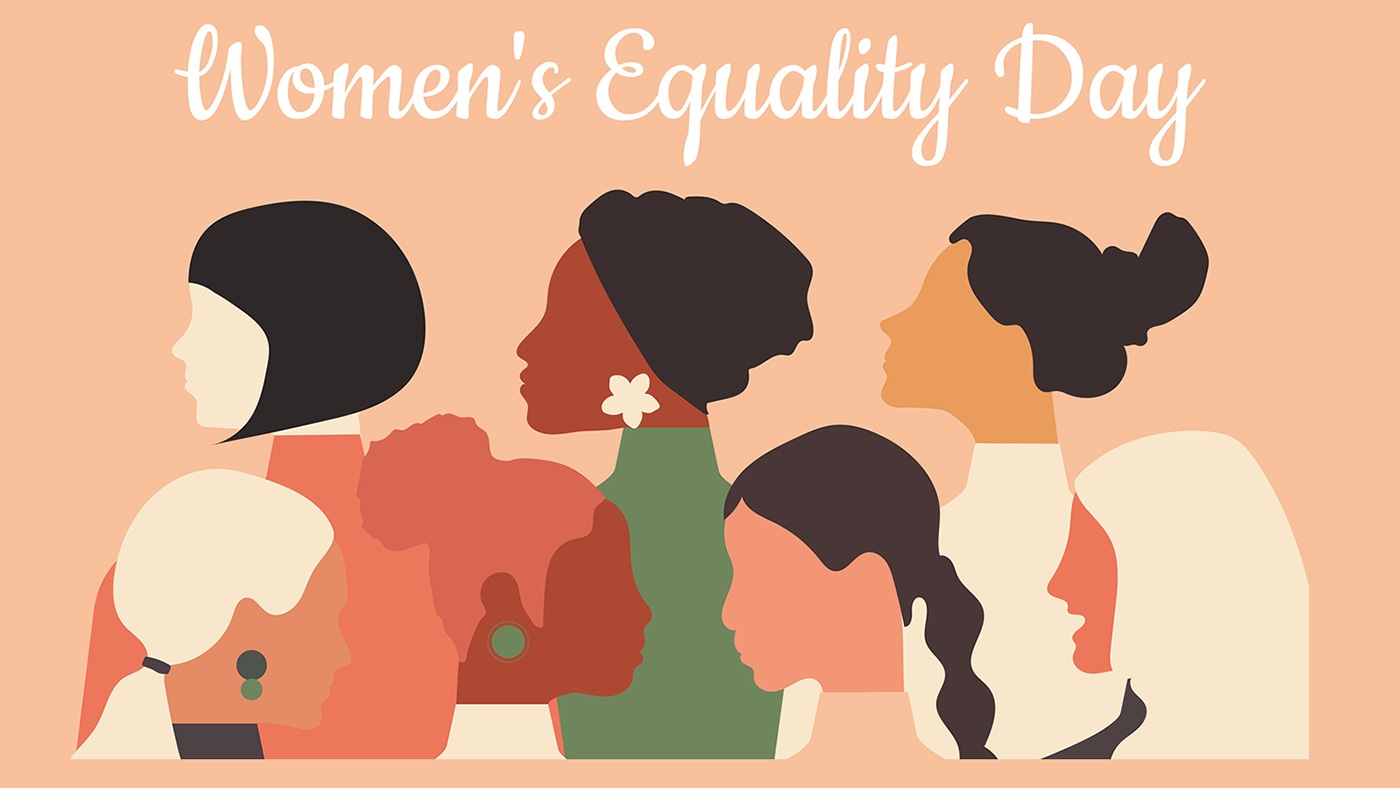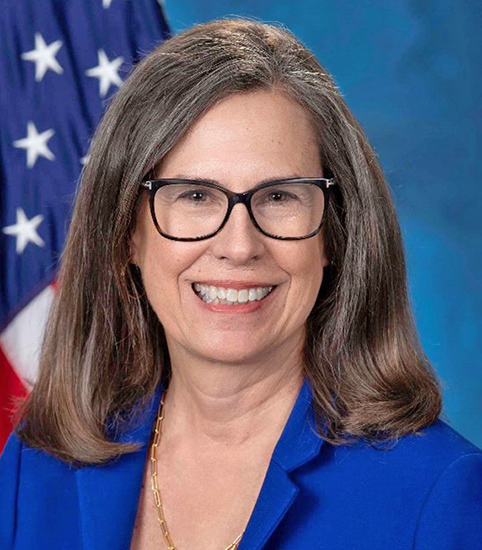At VA, safety and inclusivity are driving factors as we strive to provide equitable health care for all Veterans. This month, VA places a special focus on women service members as we acknowledge Women’s Equality Day Aug. 26. This date marks the celebration of the 1920 ratification of the 19th Amendment which allowed women the right to vote in the United States. This historical moment was a catalyst for positive change and emphasized the need to further equal opportunity for women in the U.S.
Dr. Sally Haskell, acting chief officer, VA’s Office of Women’s Health (OWH), has been instrumental in VA’s growth and the progress made to foster a safe, equitable health care environment for women. She began her career at VA as a resident where she gained both clinical and research experience. This work inspired her to continue at Connecticut VA where she was driven to enhance VA’s services to women Veterans.
Haskell has focused a significant part of her career on helping women Veterans. She was the Women’s Health medical director in Connecticut, followed by serving as the deputy chief officer of Clinical Operations and director of Comprehensive Women’s Health for the past 10 years and now acting chief officer for the Office of Women’s Health.
“When thinking of Women’s Equality Day in reference to VA health care, we want to think about equality and equity,” said Haskell. “We want to make sure there are equal outcomes by providing women Veterans with equitable care that means we must tailor care to meet their needs.”
Advancing a safer, more equitable health care environment
Women were not officially recognized as permanent members of the Armed Forces until 1948.
Because the VA health care system was initially designed for a largely male population, there were gaps in services for women Veterans. Historically, women who entered VA facilities were often mistook for men or presumed to be the spouse of a male Veteran. Recognizing these gaps, the Office of Women’s Health team has developed many initiatives to enhance the care of women Veterans. Policy now requires that women Veterans are assigned to specially trained or experienced Women’s Health Primary Care Providers.
OWH developed a training program to improve the experiences of women at VA known as the Women’s Health Mini Residency training program. The program gives health care providers a holistic understanding of the unique needs involved with women’s health care.
“We developed the three-day intensive residency in 2008,” said Haskell. “More than 10,000 clinicians have gone through the program. One of the ways you can become a women’s health primary care provider is by taking the training.”
The OWH team tracks all health care quality measures by sex. This process has led to closing gaps between men’s health care outcomes and women’s health care outcomes.
“We start with trauma-informed care. Recognition that all patients may have had trauma that impacts their response to the health care system is a way of approaching patient care that seeks to establish safety, trustworthiness, choice, collaboration and empowerment. It requires attention to the physical environment, patient preferences and a willingness to anticipate, identify and address specific facilitators and barriers to an individual’s care. We have military sexual trauma coordinators in every region as well as mental health resources if they are needed.”
Progress towards a safer, more holistic VA
VA is committed to providing a safe and welcoming environment for all who rely on our services. Haskell explains: “There has been growth in the number of women providers and leadership roles at VA. It is a great place for women to work. With more women physicians graduating from medical schools and VA providing modern work-life balance to their employees, more women are choosing to become providers at VA.
“The most important thing for employees and Veterans to know about the Office of Women’s Health is we are striving to ensure women Veterans have access to high quality equitable care at every VA site and that they are safe, welcome, respected and belong at VA.”
In line with their continued efforts to further an equitable, safe care environment, OWH’s 2023 campaign I Belong focuses on building a culture of respect by eliminating harassment. VA is dedicated to creating an inclusive environment free of harassment for all Veterans, employees, their families, caregivers and survivors. For more information on how VA is creating a safer, more welcoming space for all, visit VHA Assault and Harassment Prevention Office.
Topics in this story
More Stories
Bob Jesse Award celebrates the achievements of a VA employee and a team or department that exemplifies innovative practices within VA.
The Medical Foster Home program offers Veterans an alternative to nursing homes.
Watch the Under Secretary for Health and a panel of experts discuss VA Health Connect tele-emergency care.








My local VA has one GYN doctor one day a week. There is a very long wait time to get an appointment and veterans wind up having to go out into the community for care. There is no continuity in care…you never know if you can see the same doctor or if you have to get a new one… and that is particularly difficult for survivors of MST.
It took 30 years for me to finally get help for my MST. I was asked multiple times if I experienced MST on AD and I always responded with yes. I finally asked why I was being asked that and was then told they can refer me to a MST counselor. Once I started therapy, I have been through 3 counselors because the others have left. I was last sent to Community Care and that one has left the practice leaving me with no one. I will have to get another referral and wait 3-6 months before I can finally get another counselor who will start with the counseling they prefer rather than read my records and find out was has helped in the past.
Why don’t they pay women Veteran’s from day of application. I applied 1981 but they paid me from 2005.